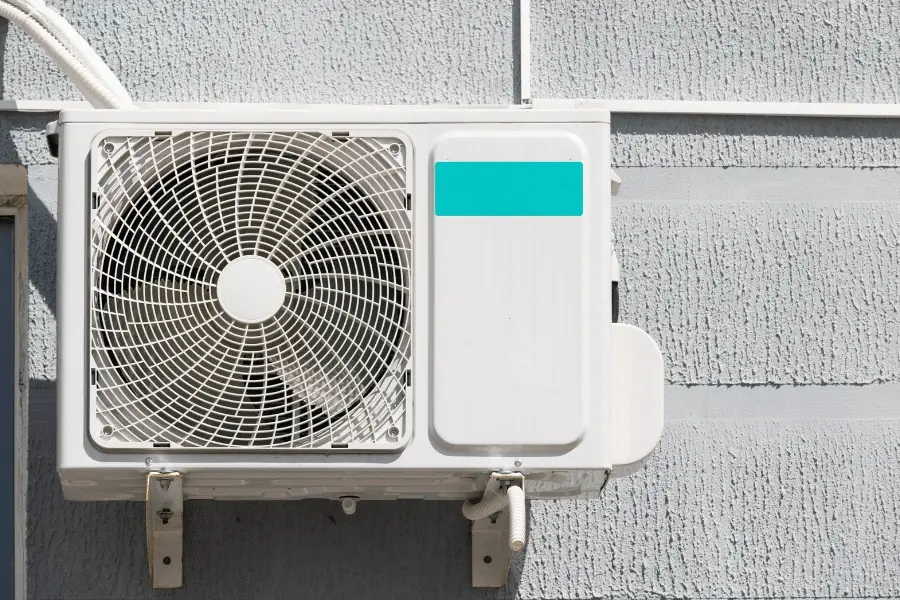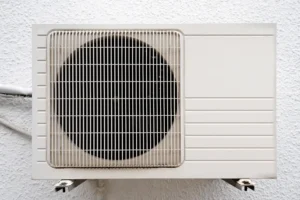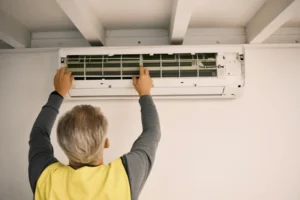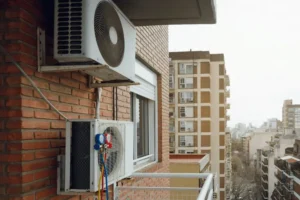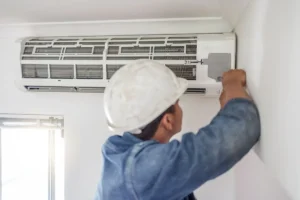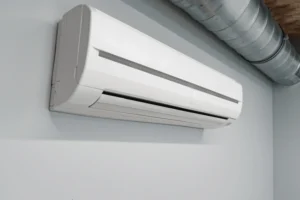Introduction: Ottawa Homeowners at a Crossroads
As Ottawa residents look for more sustainable, energy-efficient solutions to heat and cool their homes, ductless heat pumps (often called mini-splits) have become a leading option. Unlike traditional furnaces or central AC, ductless systems provide zoned heating and cooling without ductwork, ideal for homes with additions, older builds, or properties relying on baseboard or window AC units.
But one critical question remains: Should you install your ductless heat pump yourself, or hire a professional?
This article provides a 1,500+ word, deeply researched, and EEAT-optimized guide for Ottawa homeowners weighing DIY vs. professional installation. We’ll cover costs, tools, skills, warranties, long-term efficiency, rebate programs, and local considerations. Whether you’re an experienced DIY enthusiast or cautious homeowner, this guide will help you make an informed choice.
1. Ottawa Climate & Why Heat Pumps Make Sense
Ottawa’s weather plays a decisive role in HVAC decisions, influencing both system choice and installation timing.
- Cold winters: With average lows dipping below –20 °C and occasional cold snaps hitting –30 °C, only cold-climate ductless heat pumps are truly suitable. These units are engineered to maintain high efficiency even at extreme temperatures, offering a reliable alternative to traditional furnaces while reducing energy consumption. They also allow homeowners to avoid costly and often inefficient backup heating solutions during the coldest months.
- Hot, humid summers: Ottawa summers can be sweltering, with July and August often experiencing humidity above 80% and highs exceeding 30 °C. Ductless systems provide powerful, energy-efficient cooling without overworking, ensuring consistent comfort throughout the home even during prolonged heat waves.
- Energy costs & emissions: Ontario’s electricity grid is relatively clean, primarily powered by nuclear and hydro. By switching from natural gas or oil heating to a ductless heat pump, households not only reduce monthly energy costs but also significantly lower their carbon footprint, contributing to a greener, more sustainable home.
- Aging homes without ducts: Many Ottawa homes, especially older properties in Centretown, Sandy Hill, or Westboro, were built without ductwork. Retrofitting ducts can easily exceed CAD 10,000 and requires invasive construction. Ductless systems bypass this requirement, providing an efficient, minimally disruptive, and financially attractive solution for both heating and cooling.
2. Cost Breakdown: DIY vs Professional
Professional Installation Costs
According to Ottawa HVAC specialists:
| Item | Typical Cost (CAD) | Notes |
| Single-zone ductless unit | 3,500–5,500 | Includes equipment + installation |
| Multi-zone (3–4 rooms) | 6,000–12,000 | Common for mid-sized homes |
| Large multi-zone (5–6 rooms) | 15,000–25,000 | Larger homes or full replacements |
| Permits, electrical upgrades | 500–2,000 | Sub-panel or wiring adjustments |
| Ongoing maintenance | 150–300 annually | Professional service plan |
Source: AirZone HVAC, HomeAdvisor, Enbridge estimates.
DIY Installation Costs
At first glance, DIY may seem cheaper because you avoid labor costs. But let’s break it down:
- Equipment (unit itself): 2,500–5,000 CAD depending on brand & zone count.
- Specialized tools: 400–800 CAD (vacuum pump, gauges, flare tools, pipe cutters).
- Consumables: Mounting brackets, insulation, condensate lines (200–500 CAD).
- Electrical permits/electrician fees: Even DIYers must hire a licensed electrician for final connections (300–900 CAD).
- Potential mistakes: A single refrigerant mishandling could ruin a $5,000 system.
Comparative Table
| Factor | DIY | Professional |
| Upfront cost | Lower (save 2,000–5,000 CAD) | Higher |
| Tools needed | Must buy/rent | Included |
| Warranty coverage | Often voided | Fully valid |
| Time required | 2–4 full days | 1 day |
| Risk level | High (safety, efficiency loss) | Low |
| Rebates eligibility | Sometimes excluded | Always eligible |
3. Tools, Skills & Safety Requirements
What DIY Requires
- Tools:
- Vacuum pump (to evacuate refrigerant lines)
- Manifold gauge set
- Pipe benders and cutters
- Torque wrenches (precise tightening required)
- Drill + hole saw for wall penetrations
- Skills:
- Electrical wiring knowledge (high voltage + control wiring).
- Refrigerant handling (requires EPA/CFC certification in many jurisdictions).
- Sizing and placement (HVAC load calculations).
- Risks:
- Improperly flared copper lines = refrigerant leaks.
- Incorrect evacuation = poor efficiency.
- Wrong location = poor airflow or water drainage issues.
- Safety hazards: electrocution, refrigerant burns, fire risk.
Why Professionals Excel
- Certified technicians are trained under HRAI (Heating, Refrigeration and Air Conditioning Institute of Canada)
- Installers carry liability insurance, protecting homeowners from accidents.
- Professionals understand Ottawa building codes, preventing costly inspection failures.
- Warranty is preserved, manufacturers like Mitsubishi, Fujitsu, or Daikin only honor warranties if installed by certified contractors.
4. Energy Efficiency & Comfort: A Long-Term View
Why Ductless Heat Pumps Save More
- No duct losses: Traditional ducts lose 20–30% of energy through leaks. Mini-splits avoid this.
- Zoned heating & cooling: Heat only the rooms you use. Bedrooms cooler at night, living rooms warmer in day.
- High SEER/HSPF ratings: Top Ottawa models exceed SEER 20 and HSPF 10, reducing hydro bills.
- Year-round utility: One system replaces both furnace and AC.
Ottawa Example
A family in Orleans switching from oil heating to a ductless heat pump saved CAD 1,800 annually in heating bills, according to AirZone case studies.
Comfort & Indoor Air Quality
- Built-in multi-stage filters improve indoor air quality, beneficial in Ottawa where pollen and wildfire smoke affect summers.
- Inverter compressors keep temperature steady without frequent cycling.
5. Rebates & Financing in Ottawa (2025 Update)
Ottawa homeowners have access to several generous rebates and financing programs that make ductless heat pump installation more affordable and attractive:
- Home Efficiency Rebate Plus (HER+): Offers up to CAD 6,500 back for eligible upgrades, helping offset a large portion of installation costs for both single- and multi-zone systems.
- Enbridge Gas Programs: Provide incentives specifically for fuel-switching from natural gas to more efficient electric heat pumps, encouraging energy savings and lower emissions.
- Canada Greener Homes Loan: Offers up to CAD 40,000 in interest-free financing over 10 years, allowing homeowners to invest in modern, energy-efficient systems without upfront financial strain.
- City of Ottawa Local Initiatives: Some neighborhoods run pilot programs that provide energy-efficiency loans or rebates, targeting older homes and low-income households to make sustainable upgrades more accessible.
Important Note: DIY installations generally do not qualify for these rebates because professional verification and energy audits are mandatory. Certified contractors ensure the system is installed correctly, meets safety codes, and performs efficiently, requirements that directly impact rebate eligibility. Taking advantage of these programs not only reduces out-of-pocket costs but also maximizes long-term energy savings, making professional installation the smarter financial choice.
6. Lifespan, Maintenance & Reliability
- Average lifespan: Most professionally installed ductless heat pumps last between 15–20 years with regular annual servicing. Proper maintenance preserves efficiency, prevents breakdowns, and maximizes return on investment.
- DIY risks: Incorrect installation or poor maintenance, such as inadequate vacuuming of refrigerant lines or improper refrigerant charge—can drastically reduce system longevity, sometimes shortening lifespan to just 5–10 years. Even minor errors can cause performance loss, higher energy bills, or costly repairs.
- Maintenance checklist:
- Clean air filters every 1–3 months to maintain airflow and indoor air quality.
- Rinse outdoor coils yearly to remove debris and prevent corrosion.
- Schedule professional tune-ups annually, including refrigerant level checks, leak detection, and thorough coil cleaning.
Professional care not only extends the system’s lifespan but also ensures optimal performance through Ottawa’s extreme winters and humid summers. Regular service helps detect small issues before they escalate, preserves manufacturer warranties, and guarantees the heat pump operates at peak efficiency. By committing to professional maintenance, homeowners enjoy consistent comfort, lower energy bills, and peace of mind knowing their investment is protected.
7. Real-World Decision Factors
DIY May Be Considered If:
- You have advanced HVAC or electrical background.
- The unit is small, serving a cottage or garage.
- Saving upfront money outweighs long-term risks.
Professional Is Better If:
- You want to qualify for rebates.
- You’re installing multi-zone systems.
- You care about warranty protection.
- You want peace of mind with code compliance.
FAQ
What are the typical installation costs for ductless heat pumps in Ottawa?
Professional installation ranges CAD 6,000–12,000; single-zone units may start at CAD 3,500 each.
Can I install a ductless heat pump myself in Ottawa?
It’s possible for highly skilled DIYers but risky, incorrect work can void warranties and reduce efficiency.
What rebates are available for heat pump installations in Ottawa?
HER+ up to CAD 6,500, Enbridge Gas rebates, and Canada Greener Homes loans are available.
Why is professional installation preferable to DIY?
Professionals ensure safety, efficiency, warranty coverage, and compliance with Ottawa codes.
What maintenance do ductless heat pumps require?
Clean filters every 1–3 months; schedule yearly professional servicing for refrigerant and coil checks.
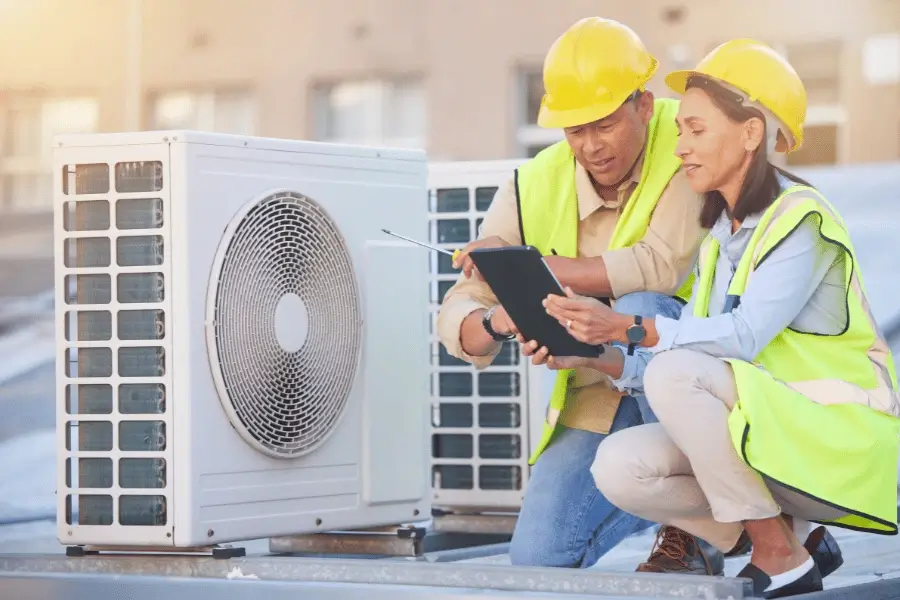
8. Conclusion: Which Should You Choose?
For most Ottawa homeowners, professional ductless heat pump installation isn’t just the safer choice, it’s the smarter long-term investment. While the idea of a do-it-yourself project can be tempting, especially with the promise of saving on labor costs, the risks of DIY installation almost always outweigh the short-term financial benefit. Installing a ductless system involves far more than mounting a unit on the wall and plugging it in. It requires electrical knowledge, refrigerant handling certification, and an understanding of local building codes. A single mistake, like a poorly sealed refrigerant line or an overloaded circuit, can compromise efficiency, damage the unit, or even create safety hazards.
Professional installers bring experience, training, and specialized tools that most homeowners don’t have. By hiring a certified contractor in Ottawa, you ensure that your system is sized correctly for your home, installed according to manufacturer specifications, and tested to deliver the highest efficiency possible. This matters because ductless systems achieve their impressive performance only when installed correctly. A poorly installed unit can consume more energy than the system it replaced, wiping out potential savings.
Another important factor is warranty protection. Most manufacturers require installation by licensed professionals to keep warranties valid. A DIY job may void coverage, leaving you responsible for repair or replacement costs if anything goes wrong. In contrast, certified installers not only protect your manufacturer warranty but often provide their own workmanship guarantees, giving you added peace of mind.

